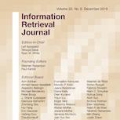A deep learning (DL)-enabled semantic communication (SemCom) has emerged as a 6G enabler while promising to minimize power usage, bandwidth consumption, and transmission delay by minimizing irrelevant information transmission. However, the benefits of such a semantic-centric design can be limited by radio frequency interference (RFI) that causes substantial semantic noise. The impact of semantic noise due to interference can be alleviated using an interference-resistant and robust (IR$^2$) SemCom design. Nevertheless, no such design exists yet. To shed light on this knowledge gap and stimulate fundamental research on IR$^2$ SemCom, the performance limits of a text SemCom system named DeepSC are studied in the presence of (multi-interferer) RFI. By introducing a principled probabilistic framework for SemCom, we show that DeepSC produces semantically irrelevant sentences as the power of (multi-interferer) RFI gets very large. We also derive DeepSC's practical limits and a lower bound on its outage probability under multi-interferer RFI. Toward a fundamental 6G design for an IR$^2$ SemCom, moreover, we propose a generic lifelong DL-based IR$^2$ SemCom system. Eventually, we corroborate the derived performance limits with Monte Carlo simulations and computer experiments, which also affirm the vulnerability of DeepSC and DL-enabled text SemCom to a wireless attack using RFI.
翻译:暂无翻译



